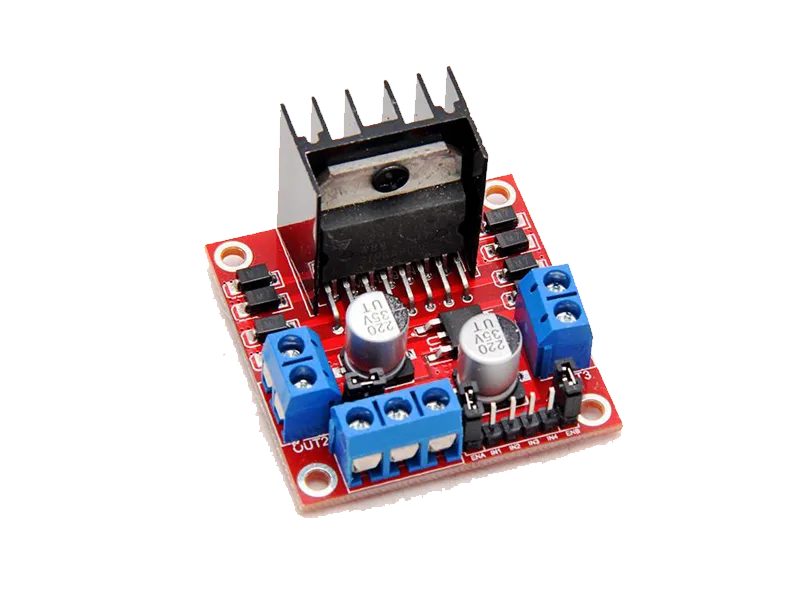L298N Motor Driver Module: A Versatile Motor Control Solution
Introduction The L298N Motor Driver Module stands out as a versatile and high-performance motor control solution suitable for a wide range of applications. In this detailed product description, we will delve into its key features, benefits, and applications.
Key Features of the L298N Motor Driver Module
- Dual H-Bridge Design
- The L298N boasts a dual H-bridge design, enabling simultaneous control of two DC motors or one stepper motor.
- This design empowers precise control over motor direction and speed.
- Voltage and Current Compatibility
- Operating within a supply voltage range of 5V to 35V, the module accommodates a variety of motor types.
- It can handle peak currents of up to 2A per channel or a maximum of 4A with proper heat dissipation.
- Efficient Heat Dissipation
- To ensure optimal heat dissipation during extended use, the module features a generously sized heat sink.
- This heat dissipation capability enhances the module’s performance and durability.
- User-Friendly Interface
- The L298N readily accepts standard TTL logic levels (5V), simplifying integration with popular microcontrollers such as Arduino and Raspberry Pi.
- This user-friendly interface facilitates accessibility for both beginners and experienced users.
- Precise Control Options
- Users can achieve meticulous control over motor speed and direction using Pulse Width Modulation (PWM) and digital inputs.
- These control options prove indispensable for a wide spectrum of motor applications.
- Built-in Protection Features
- The module incorporates vital protection features, including back EMF protection and internal clamp diodes.
- These safeguards shield the module and connected components from voltage spikes and electrical irregularities.
Applications of the L298N Motor Driver Module
- The L298N finds versatile applications in robotics projects, DIY electronics, and various automated systems.
- It serves as a common choice for small electric vehicles, Arduino-based applications, and projects necessitating precise motor control.





























